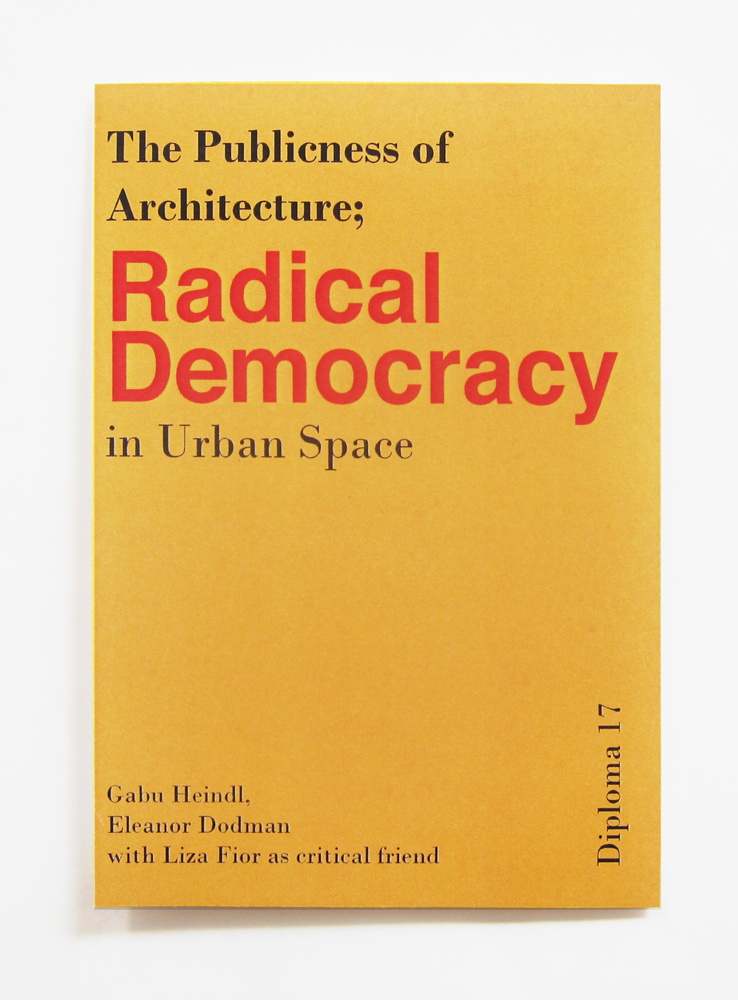The Publicness of Architecture. Radical Democracy in Urban Space

The Publicness of Architecture Radical Democracy in Urban Space
AA | Architectural Association School of Architecture Diploma Unit 17:
Short brief
London is our site and Public-Private Partnerships are our leap-off point. This short acronym, PPP, has become iconic in the designation of neoliberal urban planning initiatives and the financialization of housing and public space. In Public-Private Partnerships, the public is increasingly and undemocratically interpreted as governmental institutions that delegate the responsibility of planning and design to private actors – those bolstering the generation and power of capital and embedding inequality.
Diploma 17 will work within the purview of ‘radical democracy’, a term borrowed from political theory, and set out to re-democratise democracy itself in this moment of collective crisis. Through this lens, planning will be read as a ‘setting-in-dispute’ that hinges upon alliances between architecture and the popular agency of social movements and bottom-up initiatives that work to ameliorate democratic participation, climate justice, accessibility to public space and affordable housing provision. We will conceive of architectural agency as ‘acting in public’, designing public infrastructures and supporting the commons.
The unit is organized into three parts:
Urgent Tasks / Burning Questions – Focusing on maps and researching urban sites students will develop an acute understanding of the city they live in and its processes of change. We will collectively determine the role of architecture in this condition, reading and mapping London as a site for critical architectural agency.
Architectural agency in the political field / Just Architecture – This enquiry will embed an in-depth-understanding of planning conditions, land ownership rights, democratic development policies, and Section 106 agreements in order to identify the obstacles to and openings for architectural agency within the political field.
Forms in the Face of Impossibility / Nonsolutions – Students will develop projects that are situated between activism, architectural reconfiguration and radical engagement. Such proposals for public infrastructures may well be nonsolutions – well-crafted and represented architectural proposals that are precise and implementable that respond to immediate urgency of a given issue, but do not deny the inherent contradictions that it manifests. Ultimately, the work of Diploma 17 will serve as a testbed for the agency of architecture in the contemporary condition. (GH)
Link to Website and projects: https://aadiploma17.squarespace.com
Diploma Unit 17,
Architectural Association School of Architecture,
London 2019/2020
Tutors
Gabu Heindl with Eleanor Dodman and critical friend Liza Fior